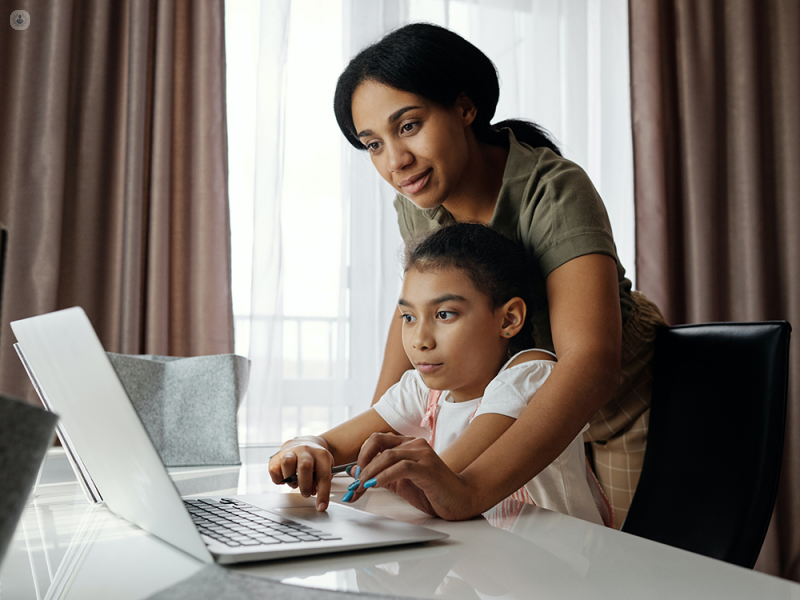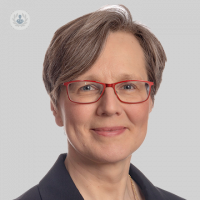impact COVID-19 pandemic children’s eye clinic
Escrito por:Following concerns about the rapid spread of the coronavirus in March this year, all hospital eye clinic appointments for children were cancelled, with the exception of those for sight-threatening conditions. It was feared that this would have a drastic long-term impact on children's eye health across the country.
Since then, Dr Annegret Dahlmann-Noor, a leading paediatric ophthalmologist from Moorfields Eye Hospital, has been attending children via video-consultations. In this article, she explains how the COVID-19 restrictions have impacted the clinic, the changes that have been made to ensure everyone that enters remains safe and discusses both the benefits and challenges she has encountered so far from using online video-consultations.

How successful have your video-consultations been so far?
We feared that this lockdown would have a severe impact on children’s eyes and vision and introduced video-consultations to stay in touch with families. Unexpectedly, this new form of consultation has proven very popular with parents and carers.
We found that children and families are comfortable talking to a clinician from their own home. Parents and carers appreciate not having to travel to a clinic, especially during the current period of uncertainty. We expect this reluctance to attend hospitals to continue, even when parents and carers return to work and children return to nursery and school.
After the lockdown, we will continue to offer video-consultations where appropriate, as they mean less time off work and school for families.
What are you capable of doing during a video-consultation?
In a video consultation, it is perfectly possible to listen to the parents’ and carers’ concerns about their child’s eyes and vision, and clinicians can observe the child. Problems affecting the eyelids or surface of the eye can be assessed, either on the video or by parents sending a close-up photo to a secure e-mail address.
What challenges have you encountered?
The most important limitation of video-consultations is the lack of a robust test to measure children’s vision at home. For an in-depth assessment of vision, eye alignment, tests for glasses and checks of the health of the eye, families still need to attend the eye clinic.
However, we keep these face-to-face appointments to a minimum and make them as safe as they can be. In particular, we ask families not to come to the clinic if a family member has shown COVID-19-related symptoms such as a temperature, a persistent cough or change of the sense of smell or taste in the past two weeks.
What COVID-19 prevention measures are in place at the clinic?
At the door, nurses carry out a temperature and symptom check and give children over the age of 5 years and the parent or carer a face mask.
- Wearing a mask is compulsory from the age of 11 years unless there are reasons why a person cannot tolerate a mask
- Children aged 5-10 years can choose whether they wish to wear a mask or not
- Children aged 3-5 years can wear one if they like, but we do not routinely offer a mask to them
- Children under the age of 3 years should not wear masks
To enable social distancing, we ask families not to arrive early or late; we only admit patients into the building 15 minutes before their appointment time.
Only one parent/carer can come in with the child. The clinic staff wear masks and gloves and clean all equipment after seeing each patient. Hand sanitisers are available throughout the building.
We all are settling into the ‘new normal’ ways in the post-COVID era, with video-consultations when appropriate, and face-to-face visits in the safest possible environment.
If you are worried about your child’s eye health or vision and would like to book an e-Consultation with Dr Annegret Dahlmann-Noor, visit her Top Doctors profile and check her availability.


